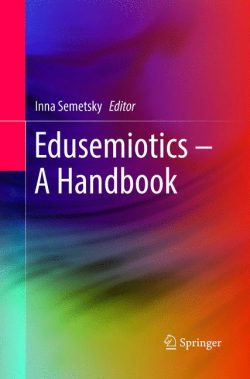This book depicts how Freud’s cocaine and Benjamin’s hashish illustrate two critiques of modernity and two messianic emancipations through the pleasures of intoxicating discourse. Freud discovered the “libido” and “unconscious” in the industrial mimetic scheme of cocaine, whereas Benjamin found an inspiration for his critique of phantasmagoria and its variant psychoanalysis in hashish’s mimesis. In addition, as part of the history of colonialism, both drugs generated two distinct colonial discourses and, consequently, two different understandings of the emancipatory powers of pleasure, the unconscious, and dreams. After all, great ideas don’t liberate; they intoxicate. Introduction.- 1. On Cocaine’s radical ambiguity.- 2. Freud’s ‘Cocaine Episode’.- 3. From Colonial to Sexual Conversion: Freud as ‘Woman’.- 4. Freud as ‘Conquistador’ of the Underworld and as ‘Bosnian Turk’.- 5. Freud on the Acropolis: Between Oedipus and ‘Little Moor’ Conclusion. Dušan I. Bjelić is Professor at University of Southern Maine USA. He obtained his PhD in Sociology from Boston University, USA. He is the author of Galileo’s Pendulum (2003) and Normalizing the Balkans (2011) and the co-editor (with Obrad Savić) of Balkan as Metaphor (2002). This book depicts how Freud’s cocaine and Benjamin’s hashish illustrate two different critiques of modernity and two different messianic emancipations through the pleasures of intoxicating discourse. Freud discovered the “libido” and “unconscious” in the industrial mimetic scheme of cocaine, whereas Benjamin found an inspiration for his critique of phantasmagoria and of its variant psychoanalysis in hashish’s mimesis. As part of the history of colonialism, both drugs generated two different colonial discourses and, consequently, two different understandings of the emancipatory powers of pleasure, the unconscious and dreams. Processing cocaine as an undisclosed industrialized scheme of euphoric pleasure, Freud constructed psychoanalysis by infusing its concepts with the residue of cocaine’s euphoria while foreclosing cocaine’s double colonialism its external colonialism, i.e. of Peru, and its internal colonialism, i.e. of the coca plant by industrial chemistry. On the other hand, considering the mimetic powers of Benjamin’s hashish intoxication as an antidote to the intoxicating power of the industrial phantasmagoria while at the same time an industrial colonization of nerves, allows for an opening up of Freud’s cocaine language to the critique of his double unconscious, colonial and industrial.
Sale!
Intoxication, Modernity, and Colonialism
Freud’s Industrial Unconscious, Benjamin’s Hashish Mimesis
฿6,160 ฿4,928
Book Details
| Weight | 4148 g |
|---|---|
| Dimensions | 148 × 210 mm |
| ISBN | 9781349957217 |
| Book Cover | |
| Copyright | 1 |
| Publisher | Palgrave Macmillan US |
| Pages |
Examines cocaine as the link between colonialism of Peru and the pharmaceutical colonialism in relation to the origins of psychoanalysis
Offers a radical contrast between Benjamin’s ‘hallucinatory collective’ and psychoanalytic normalization
A groundbreaking analysis of Freud’s cocaine dreams and “screen memories” as his industrial unconscious
Explores Freud and Benjamin’s messianic dialectics in relation to unconscious colonialism
Political re-contextualization of coca leaf as mimetic antidote to biopower
An original rethinking of Freudian and Benjaminian concepts through the discourses of colonialism and drug addiction
Analyzes the relation between discourse and intoxication in the time of high modernity



